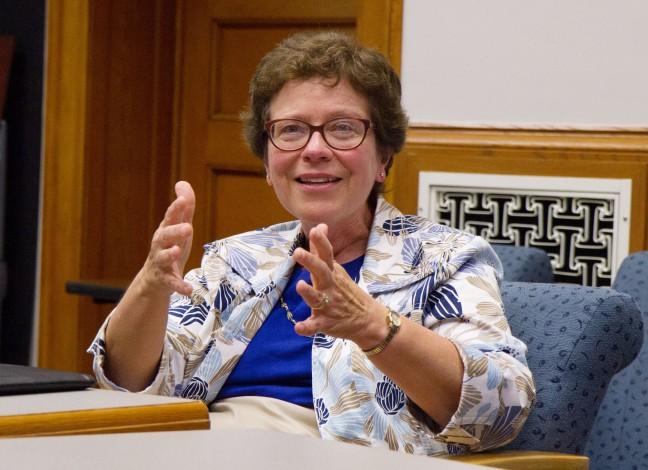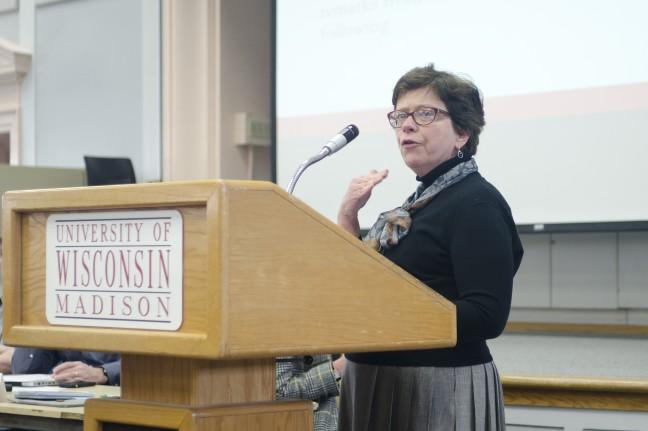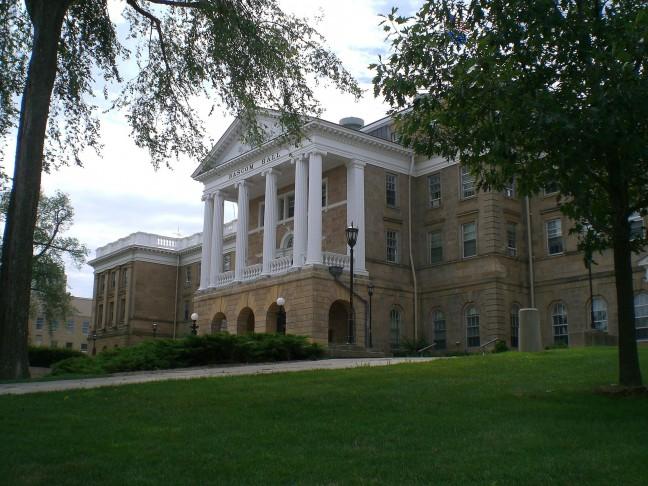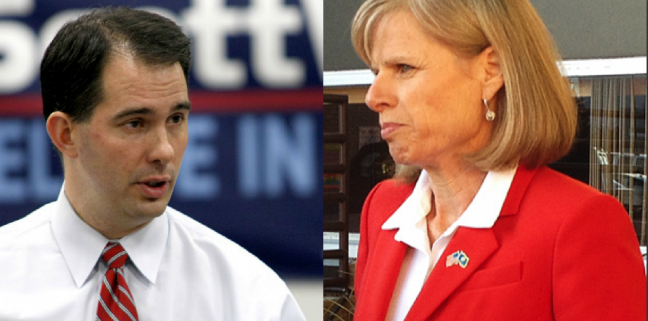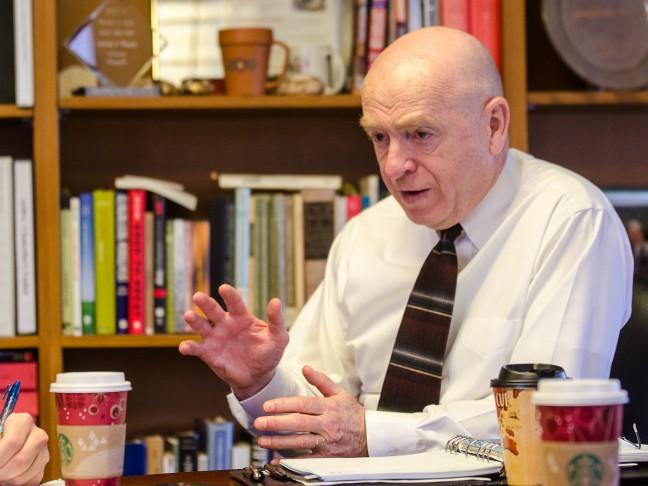
With the United States’ threatened economic dominance in the world becoming an increasingly debated topic, members of the University of Wisconsin administration met with students Thursday night to offer insight into the rapid changes affecting millions of Americans.
At a “Fireside Chat” organized by the Wisconsin Union Directorate’s Society and Politics Committee, more than 30 students, Chancellor Biddy Martin, Union Director Mark Gauthier and Dean of Students Lori Berquam debated the problems and solutions of today’s global economy.
Much of the discussion centered on UW’s role as an educational institution and how education could help the United States advance on the world stage.
Many students criticized what they called a declining economic status in the United States.
Some attributed the decline to poor social policy and lack of funds for primary and higher education. Others said the country’s reliance on military-based economic production rather than a focus on infrastructure has caused the country’s economic decline.
Compared to other participants, however, Martin’s message to the group was largely optimistic.
“I really think that it’s important to think about what’s possible even by virtue of the fact that we’re in a difficult moment,” Martin said. “I think we’re living through an incredible time, and it’s important to be aware of the exciting and opportune aspects of it.”
Martin also said she believes society must adjust to changes in technology to encourage deeper and more critical thinking. She added current societal problems could stem from thoughts drifting to polar extremes.
“It’s not thought; it’s just polar opposites going after each other. That’s what I worry about, that’s what I really, really worry about,” Martin said. “Really, there is nothing more important than being able to think things through…and do it with other people. That is fully human, I think.”
Brigid Hogan, a UW junior, said changes in technology have created smaller businesses less focused on large production seen in larger countries.
She also said she believed Wisconsin’s economy and society could thrive if more open connections were forged between Madison and other major Wisconsin cities.
“It’s tough to get from Madison to Green Bay, Rhinelander or Wausau,” Hogan said. “I think that’s vital to the success of the state – is to make your society available.”
Despite the prominent discussion about tuition and higher education, Martin and Berquam did not mention the New Badger Partnership or Madison Initiative for Undergraduates throughout the forum.
Mark Buchholtz, a UW senior, told members of the forum he lamented the current status of education throughout the country.
“I’m a math guy – I love math, and I’d love to teach,” Buchholtz said. “I’m going into actuary because I can make $55,000 a year starting out. I don’t think there’s a business for me in education just yet. I wish there were, but there’s just not.”
Hogan added that many programs that give incentives to graduating college students to improve society, such as Teach for America, could have a greater impact if they were not restrictive.
“You really have to be the most amazing person to get into the Teach for America program, which is good, but I think it could be better,” Hogan said.


